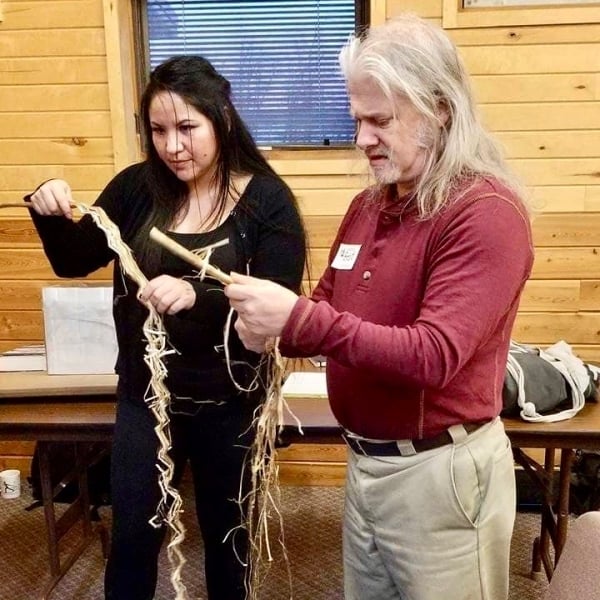
Mitakuyabi amba washte! (Good day relatives). My name is Brandy-Lee Maxie and I am a Nakoda Assiniboine member of the White Bear First Nations and I was also a member of Carry the Kettle Nakoda Nation, both in Treaty 4 territory in southeast Saskatchewan. I am a mother, activist, entrepreneur and journalist. I was recently selected for a local news fellowship with The Discourse. Over the next four months I would like to hear stories about the impacts of the oil and gas industry on Indigenous communities in Treaty 4 territory.
My reporting aims to centre Indigenous voices and stories that often go unheard in the media. I also hope that these stories help to bridge the Indigenous and non-Indigenous communities, so that we can walk in peaceful co-existence as per the Treaty relationship that Canada was built from.
Recently, I returned home from a trip that took me across Turtle Island, from Standing Rock’s Dakota Access Pipeline resistance in North Dakota, to Compton, California, for the Divest LA campaign. Common themes rang out throughout Indian Country, from stories of missing and murdered people, to extractive industry impacts and Indigenous resistance. Every place that I visited had a history of violence and genocide on Indigenous people, and a history of colonization and land exploitation, among other things. I come from an area where oil and gas is very much a staple of our economy, but it can come with impacts that Indigenous communities endure beyond the mainstream media lense.
Much of the oil and gas industry extraction projects in Saskatchewan have happened without proper consultation with First Nations. Many Indigenous people around the world are on the frontlines of the fight for Kunsi Maka (Mother Earth). The negative impacts that people talk about include water contamination, loss of identity and increase of violence in construction areas. At the same time, people are grappling with poverty and a need for economic opportunities.
So, beyond oil and gas, what other opportunities are Indigenous people in Treaty 4 looking to? Through my listening so far, I’ve learned that many people feel that the upcoming legalization of cannabis in Canada opens a door for an economic opportunity for Indigenous communities and is a way to bring the people back to the land. I’m hoping to write my first series of stories about this so I want to hear from you:
I would love to hear from you and your community about stories of how the oil and gas industry has impacted First Nations communities in Treaty 4 Territory. I would also like to know where First Nations in Treaty 4 territory stand with the upcoming cannabis legalization. Please feel free to email me at blmacsay@gmail.com with your thoughts.
Pina Maya (Thank you),
Brandy-Lee Maxie [end]



